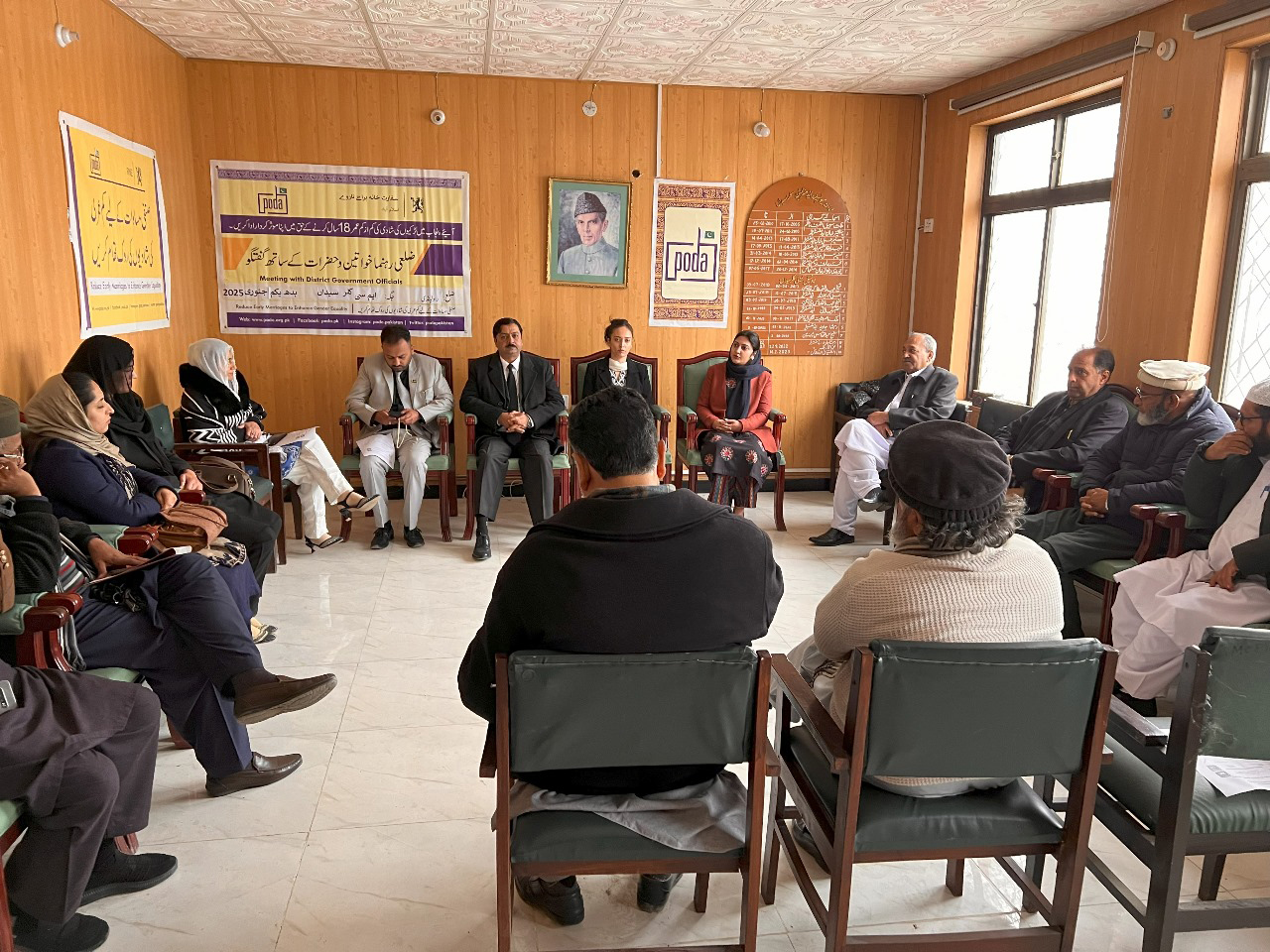
Kallar Syedan, Wednesday 01 January: During an engaging awareness-raising session organized by PODA in the hall of Tehsil Municipal Corporation, participants unanimously agreed to support an amendment in the Child Marriage Restraint Act 2015. The proposed amendment seeks to raise the minimum age of marriage for girls from 16 to 18 years, ensuring a safer and more empowering future for young girls in Punjab.
This resolution aims to safeguard adolescent girls’ fundamental rights, including access to education, reproductive health, and employment opportunities. By doing so, it will ultimately contribute to the country’s development and progress. The session was part of PODA’s 3-year project, “Reduce Early Marriages to Enhance Gender Equality,” supported by the Norwegian Embassy in Islamabad.
The session drew a diverse range of participants, including academicians, members of the Tehsil Bar Association, health professionals, and government officials from various departments such as education, health, population welfare, and local government. Representatives from the union council, media persons, youth representatives, nikah registrars, religious scholars, and members of the Municipal Committee also participated.
Advocate Khawaja Zahid Nasim cited the Constitution of Pakistan and presented an overview of the prevailing laws concerning child marriages. He highlighted the landmark Lahore High Court verdict in which the definition of ‘child’ in Section 2(a) of the Child Marriage Restraint Act 1929 termed unconstitutional. Mentioning that the Sindh Child Marriage Restraint Act sets the marriageable age for both girls and boys at 18 years, Khawaja Zahid also informed that around 40 other Muslim countries have set the minimum marriageable age for girls at 18 years to combat child marriages.
Nabeela Aslam, Project Manager at PODA, emphasized that child marriages constitute a gross violation of human and child rights. By depriving children of their childhood, education, and economic empowerment opportunities, child marriages exacerbate the severe marginalization of already vulnerable children. She said that underage marriages disproportionately affect vulnerable girl children, who are often malnourished, illiterate, and powerless to advocate for their rights. This vulnerability renders them susceptible to domestic violence, as they lack the ability to defend themselves, she added.
Advocate Bano Jahangir emphasized the importance of timely nikah registration, highlighting a common issue. She briefed that typically, when parents marry off their underage daughters, the nikah is not registered. However, when children are born from such unions, complications arise in legitimizing the marriage, underscoring the need for prompt registration, she added.
Dr. Mariam Nawaz, a doctor working at Tehsil Headquarter Hospital, shed light on the alarming health consequences of child marriages. According to her, child marriages lead to a significant increase in early pregnancies, maternal mortality, school dropouts, and exposure to violence, emphasizing the urgent need to address this critical issue. “Child marriages contribute to a devastating cycle of anemia, exacerbating maternal and infant mortality, low birth weight, and impaired mental growth,” she added.
Arshad Bhatti, Raja Pervaiz Akhter Qadri, Hafiz Asif Mehmood, Taskeen Badra and Syed Waqas Haider Advocate emphasized on the crucial role of education in safeguarding adolescent girls’ rights and promoting economic empowerment. They urged the government to prioritize girls’ education, highlighting its far-reaching benefits in protecting them from exploitation, promoting economic independence, and fostering a brighter future.

